Abstract
We investigated the effects of teaching sociodramatic scripts on subsequent interaction among three triads, each containing 2 typical children and 1 child with autistic characteristics. The same type and rate of teacher prompts were implemented throughout structured play observations to avoid the confounding effects of script training and teacher prompting. After learning the scripts, all children demonstrated more frequent theme-related social behavior. These improvements in social-communicative interaction were replicated with the training of three sociodramatic scripts (i.e., pet shop, carnival, magic show) according to a multiple baseline design. These effects were maintained during the training of successive scripts and when the triads were reconstituted to include new but similarly trained partners. Results provided support for the inclusion of systematic training of scripts to enhance interaction among children with and without disabilities during sociodramatic play.
Full text
PDF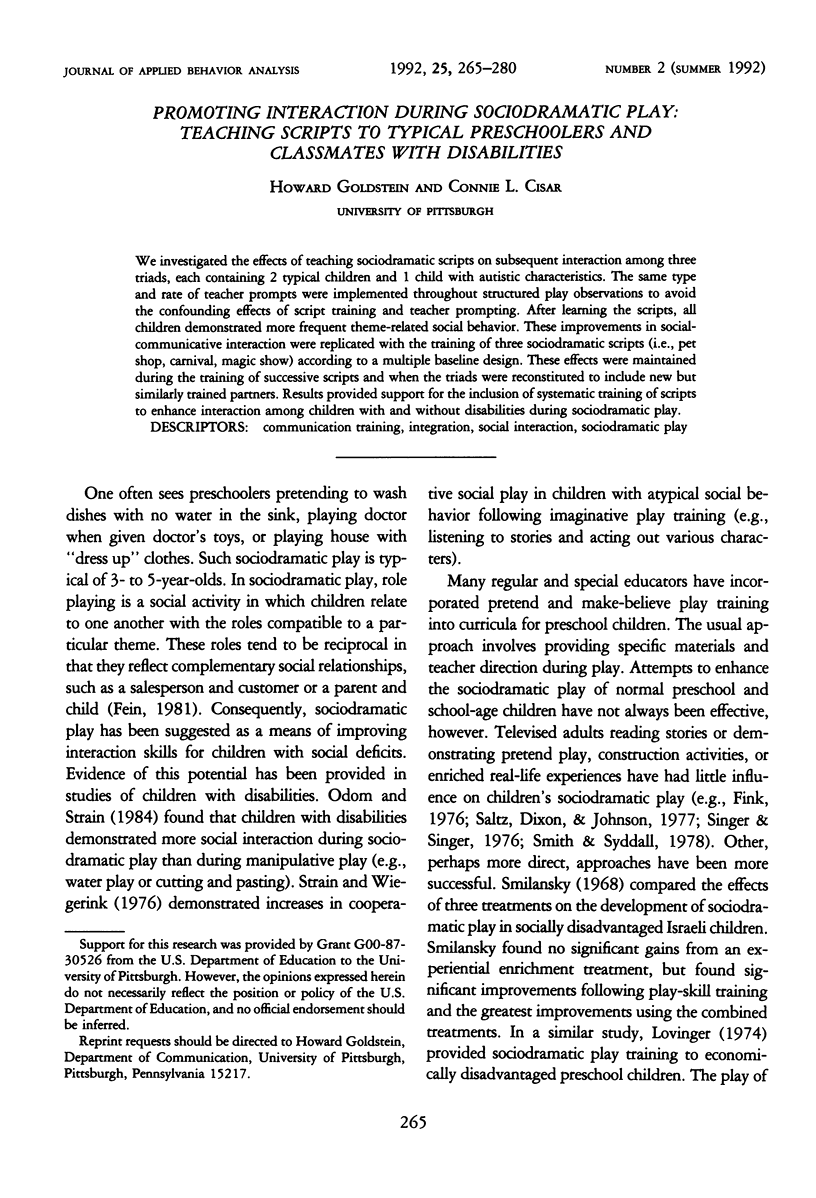
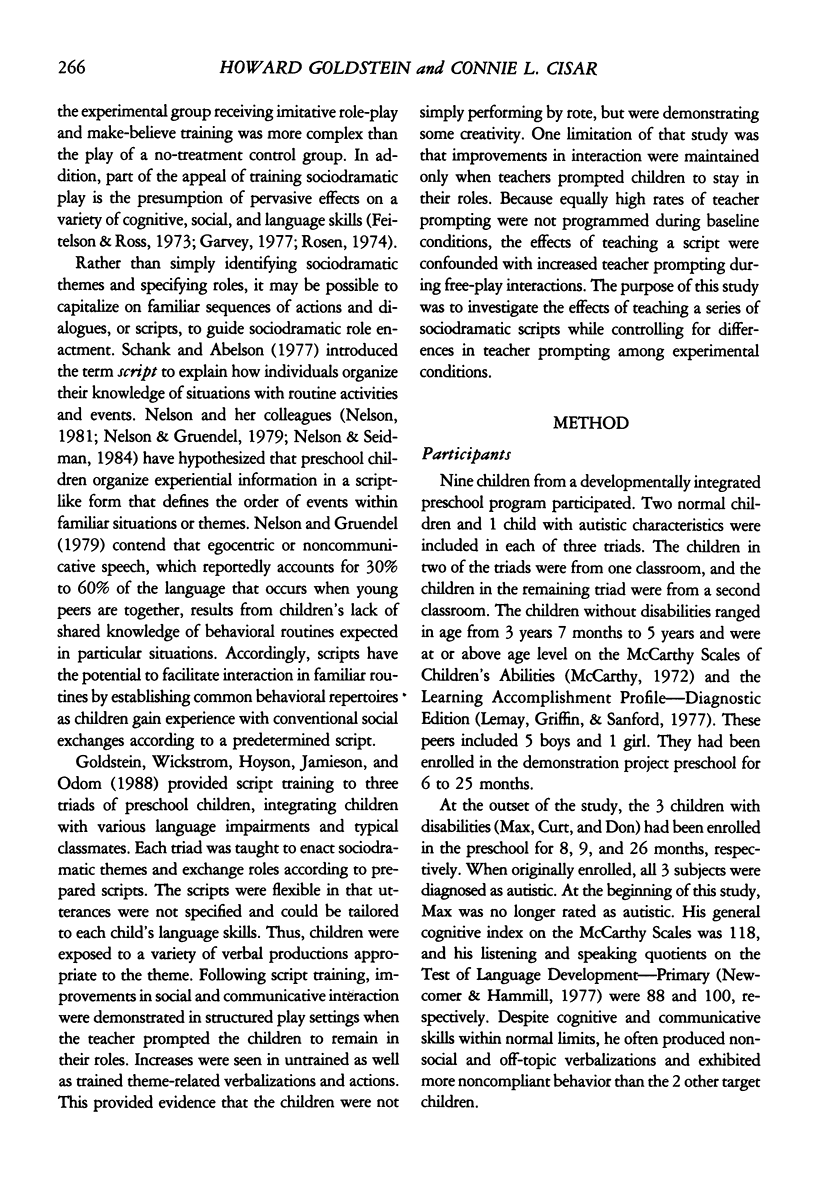
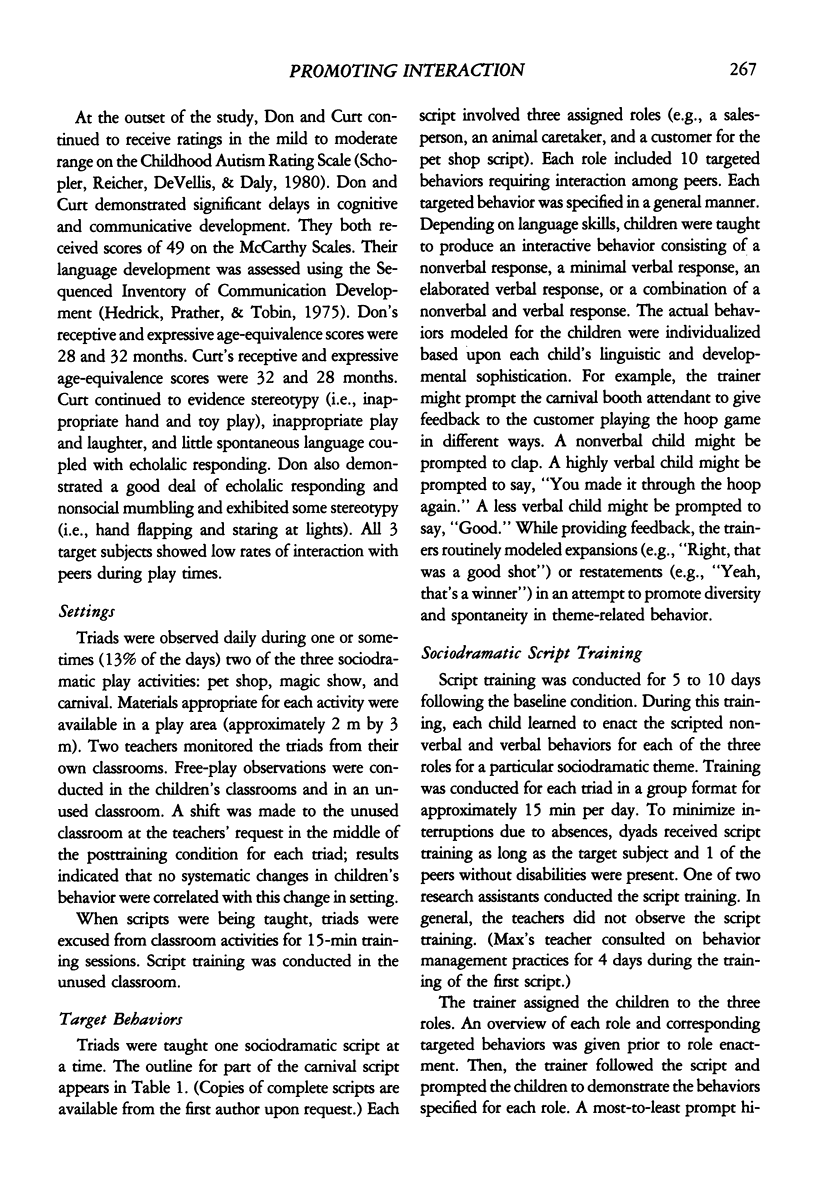
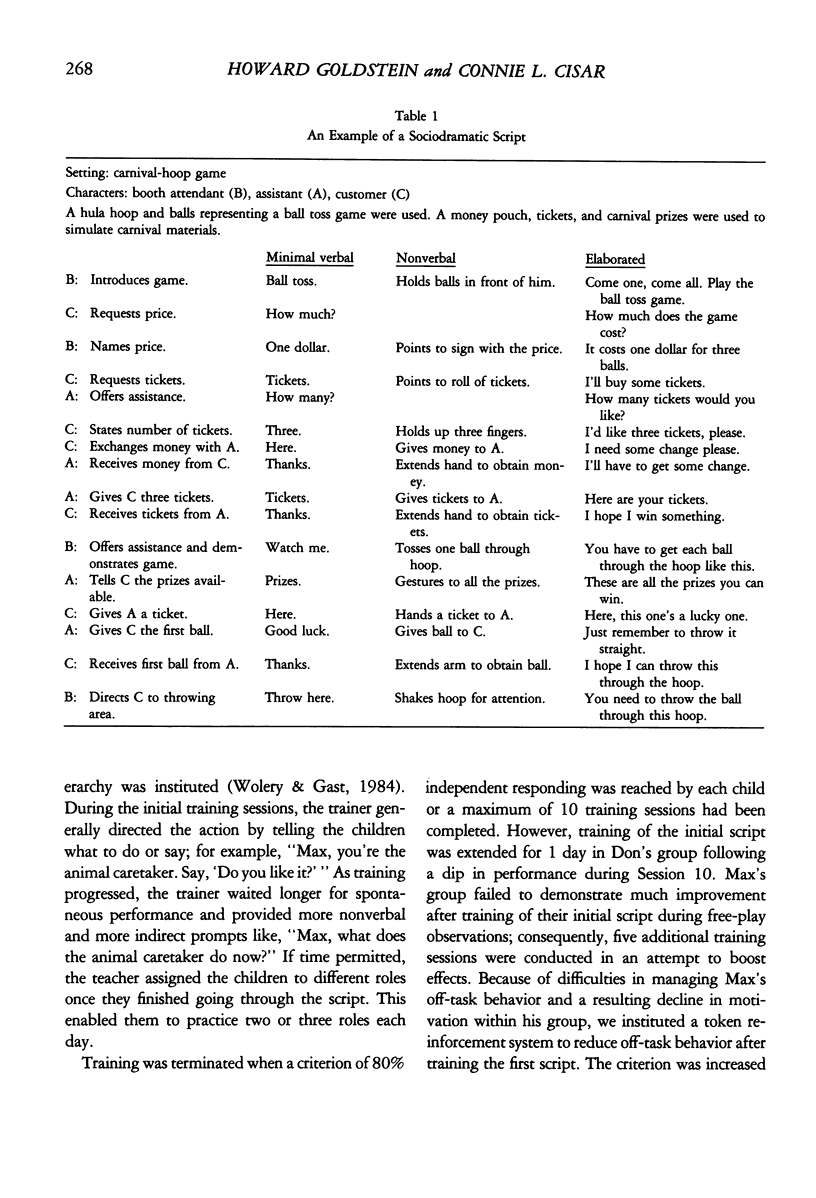
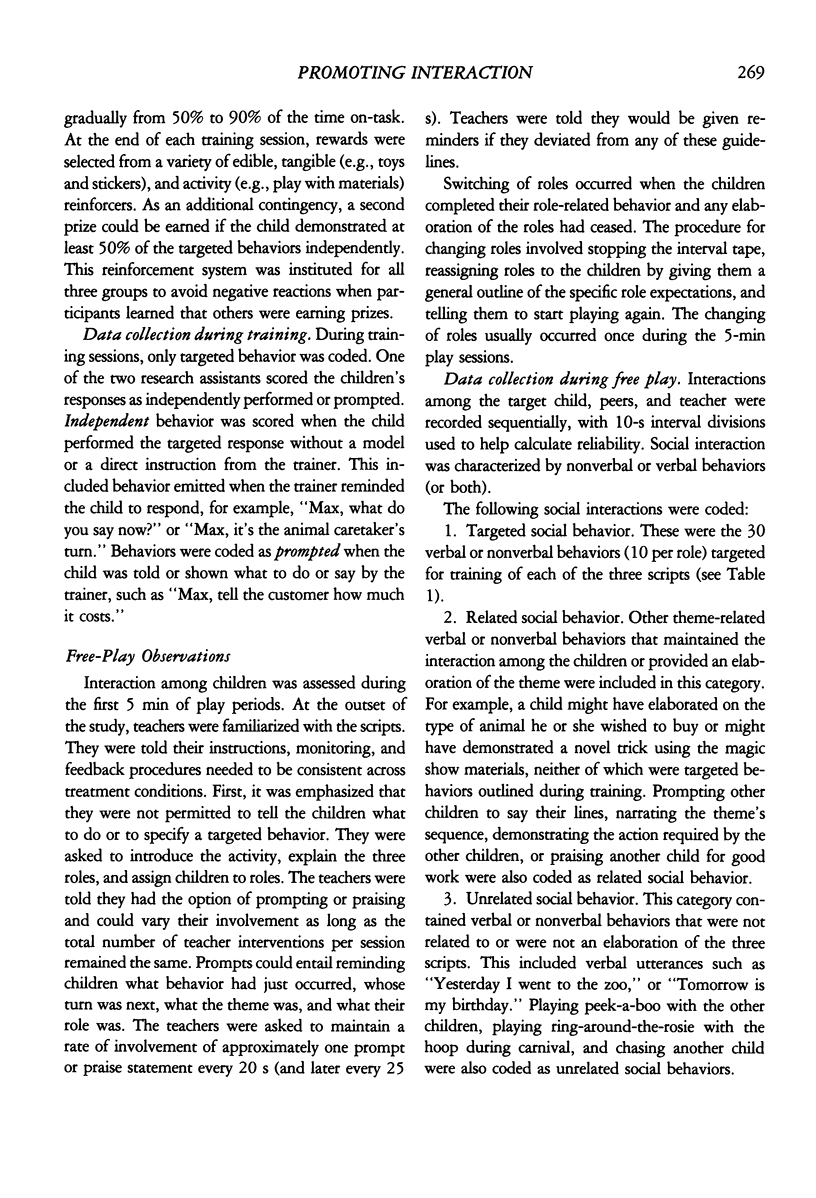
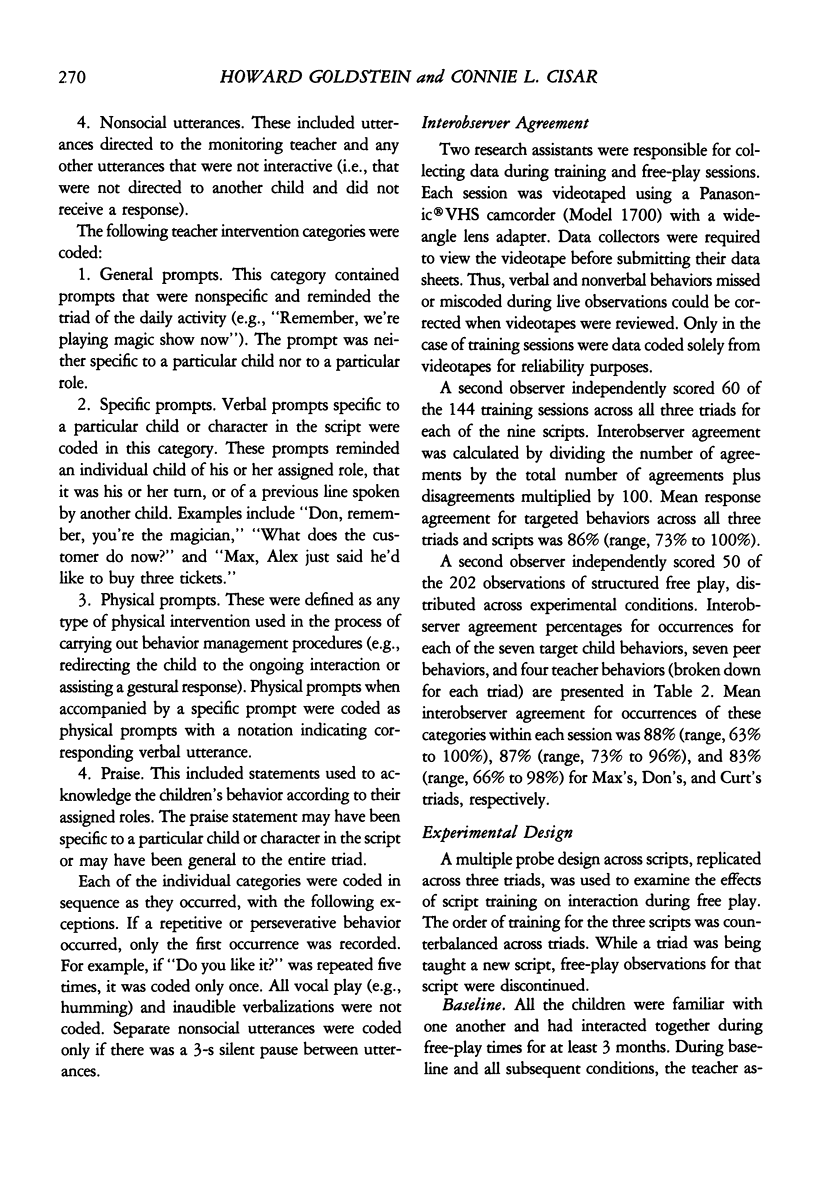
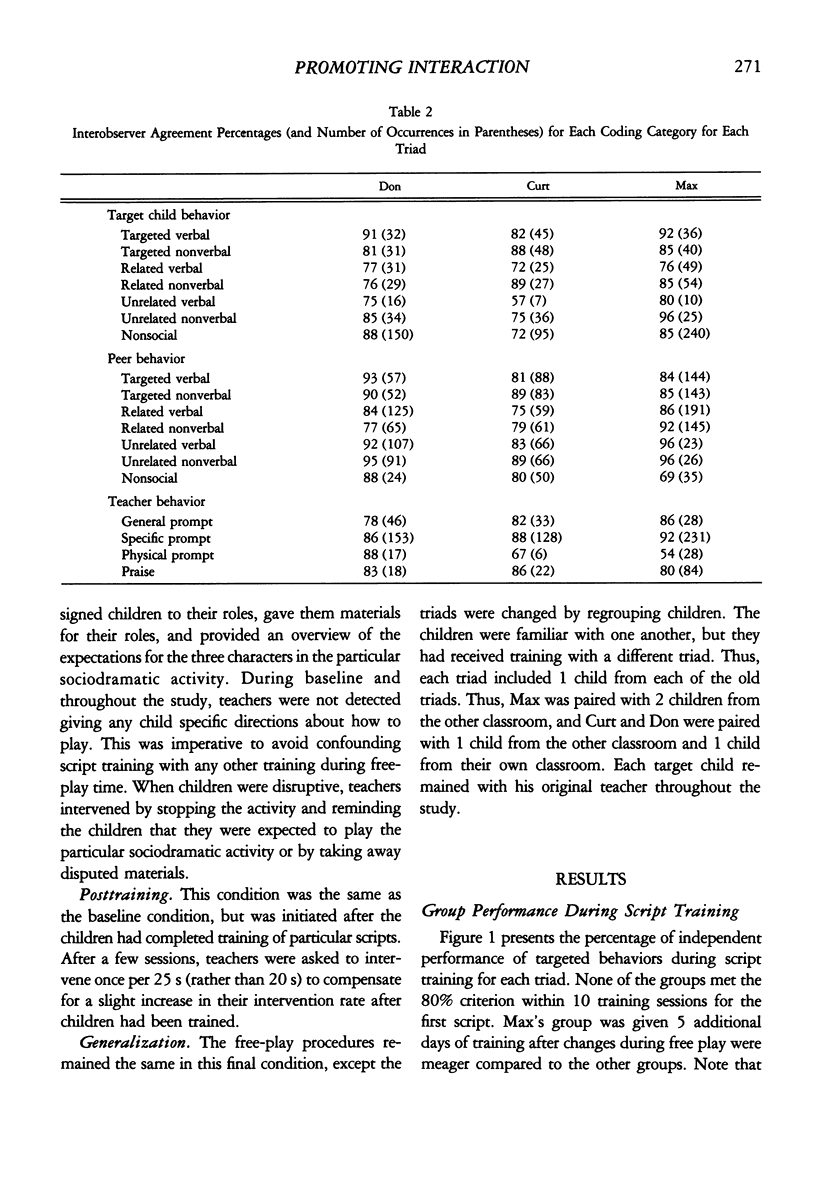
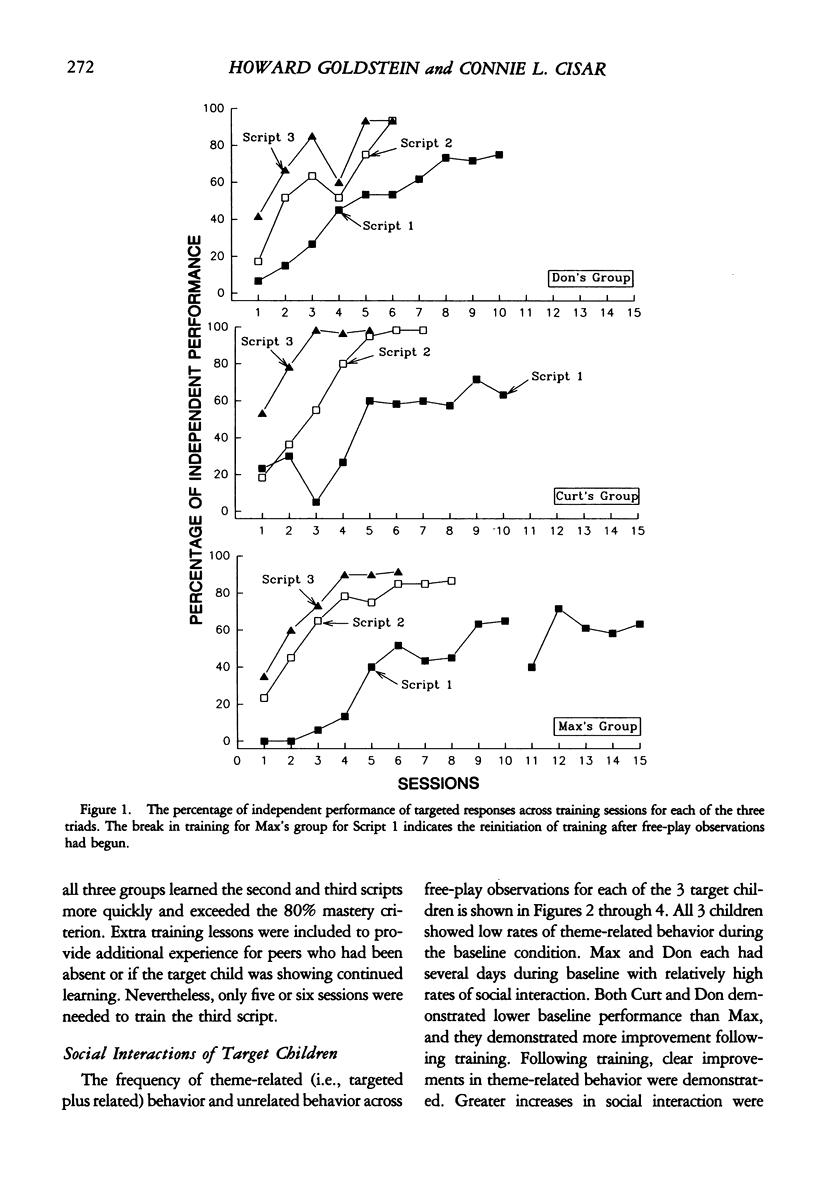
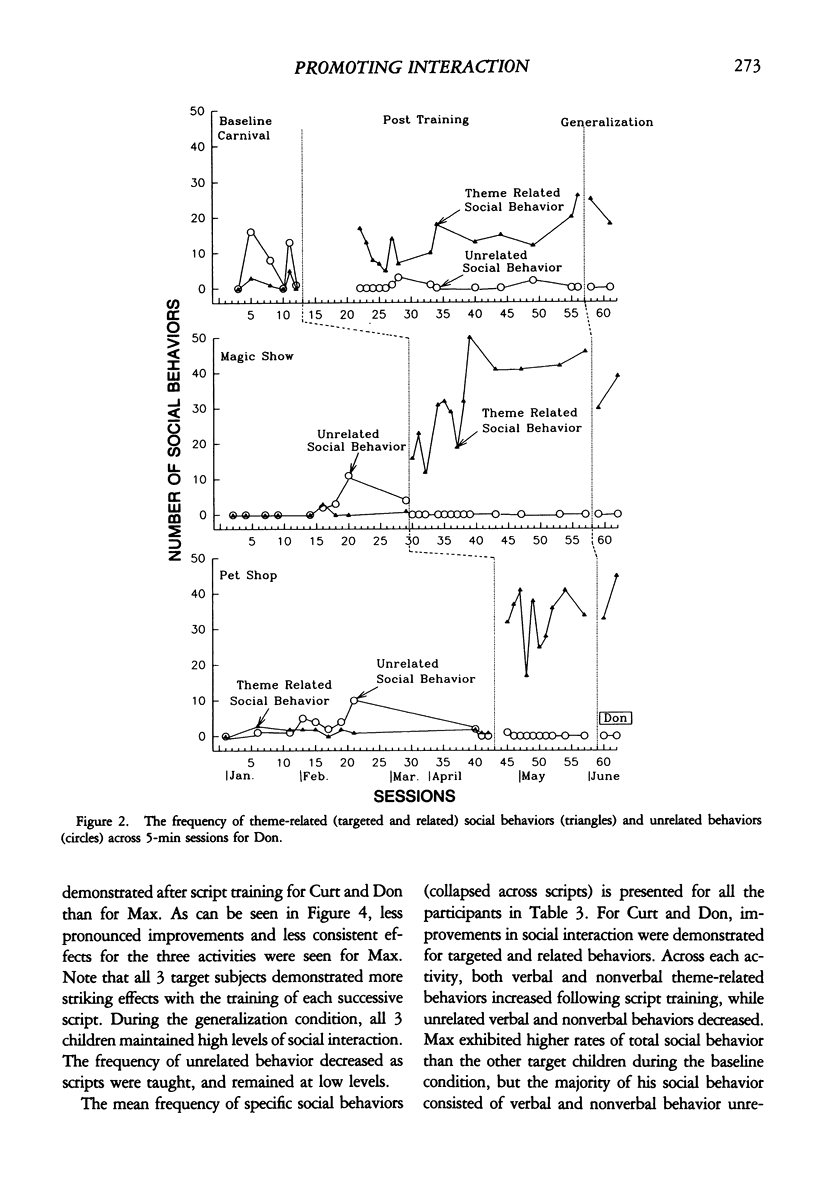
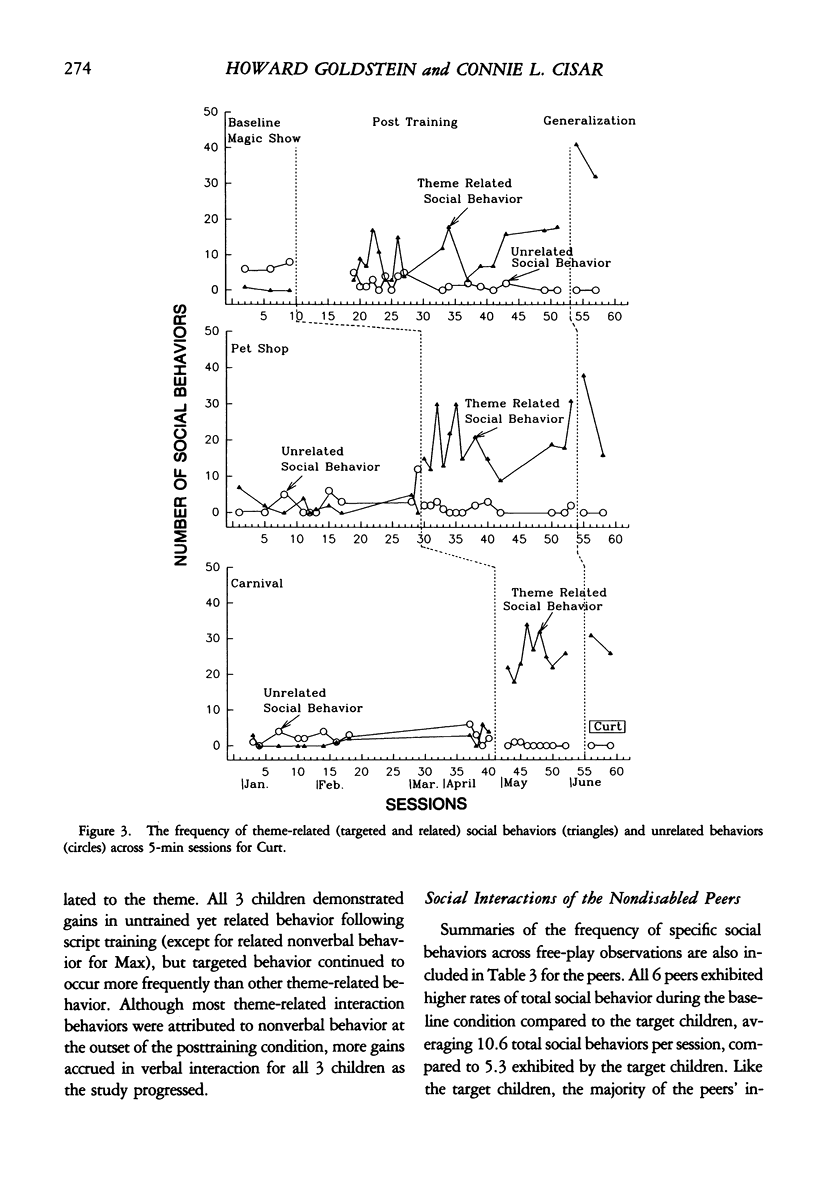
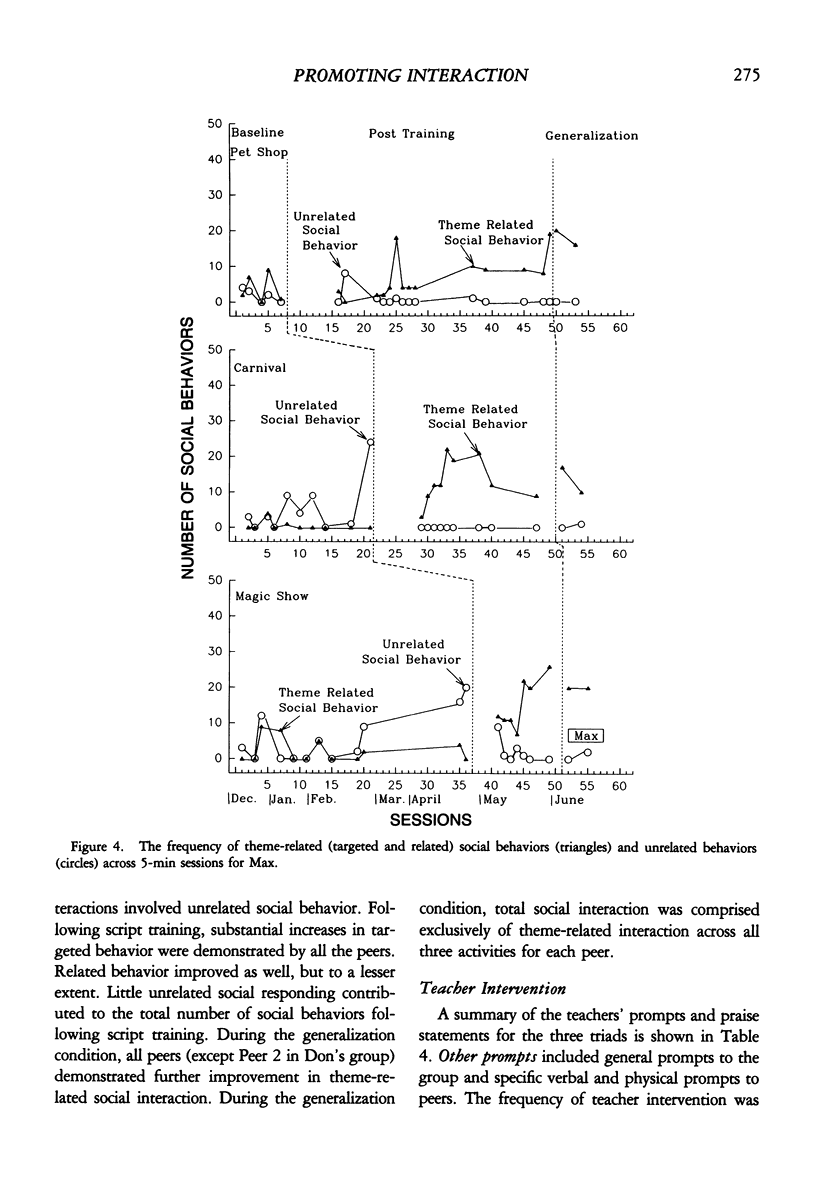
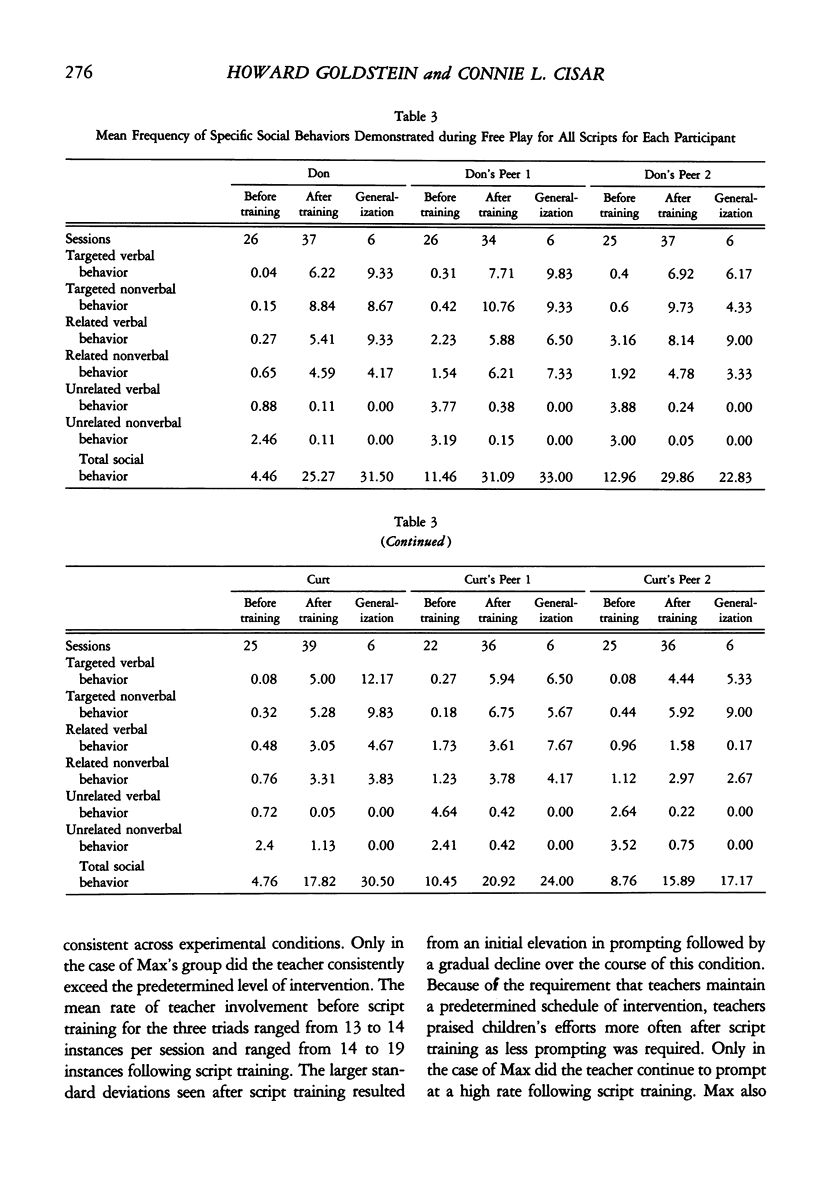
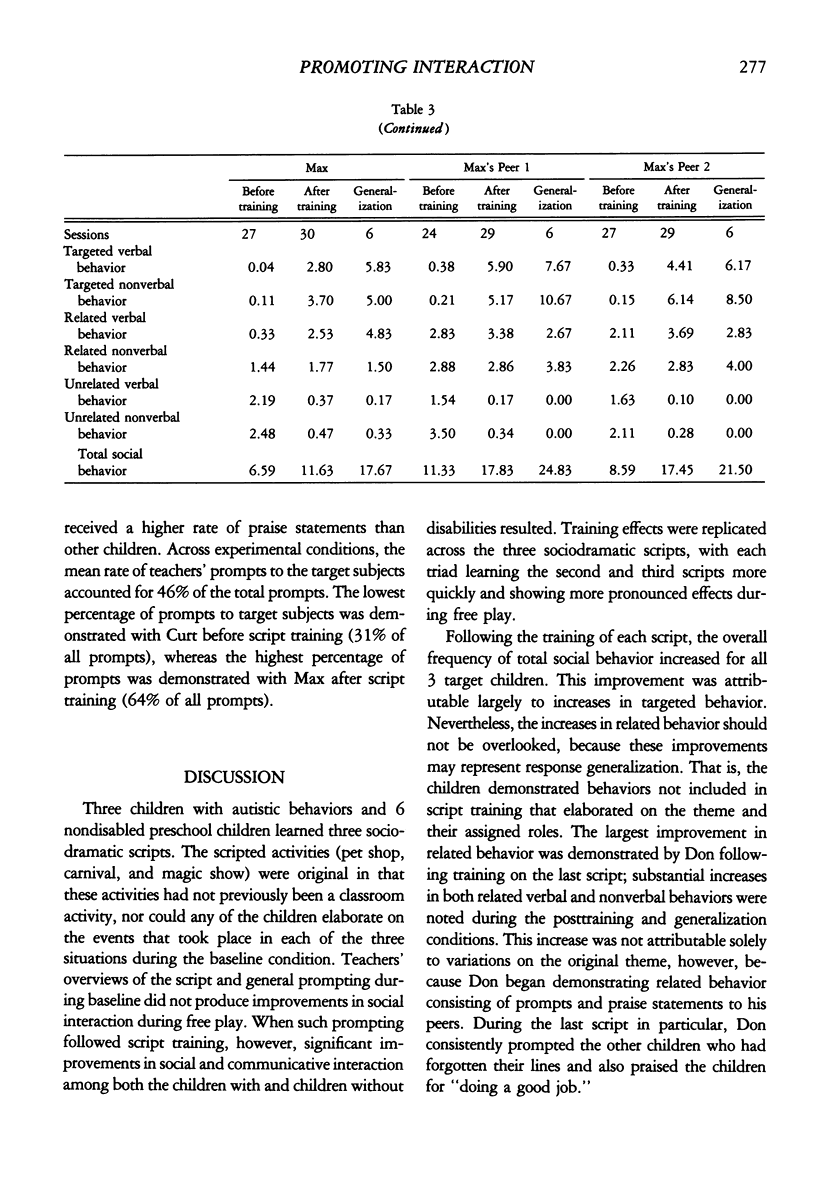
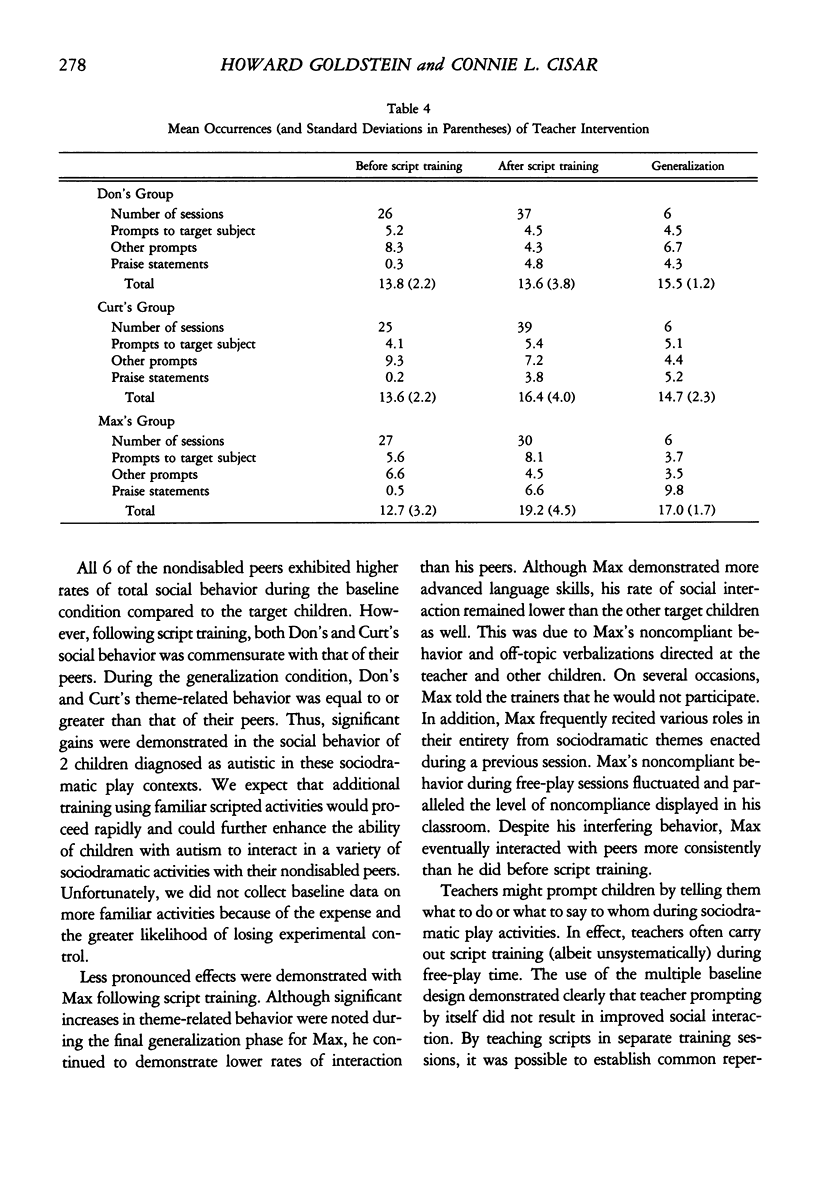
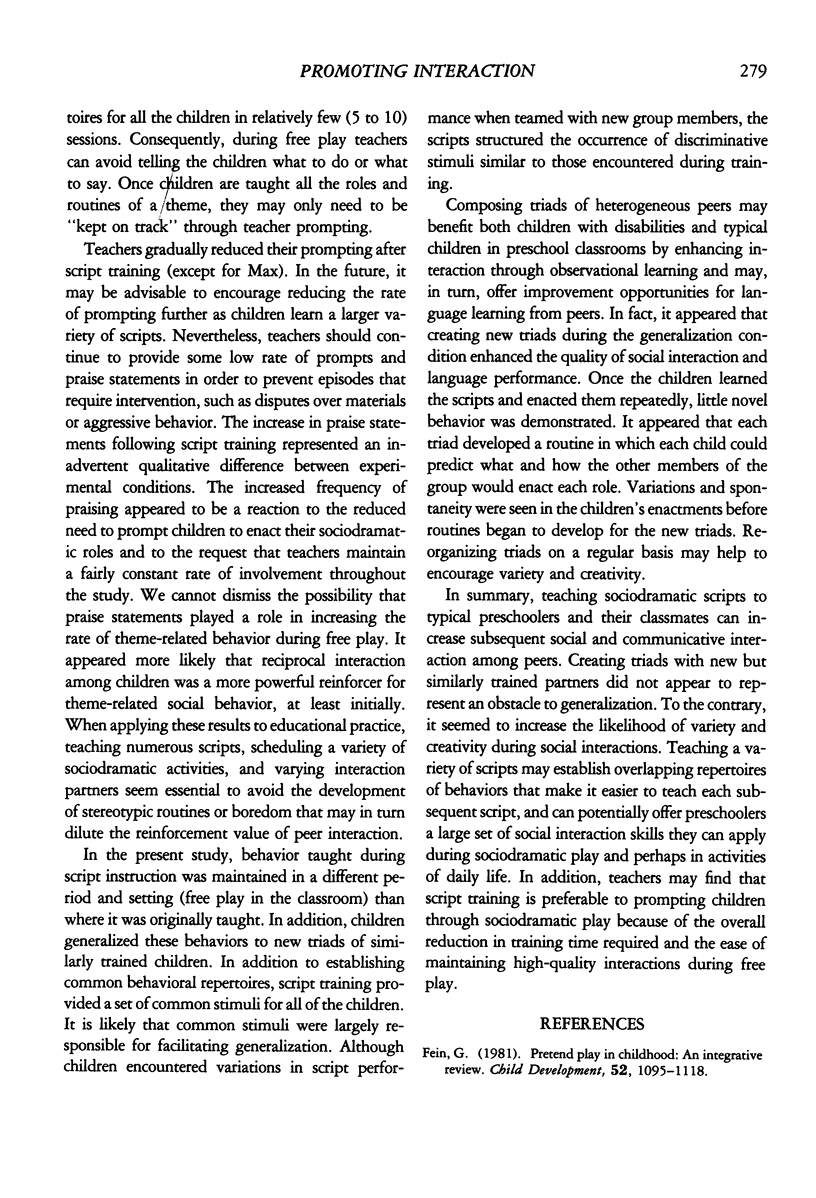
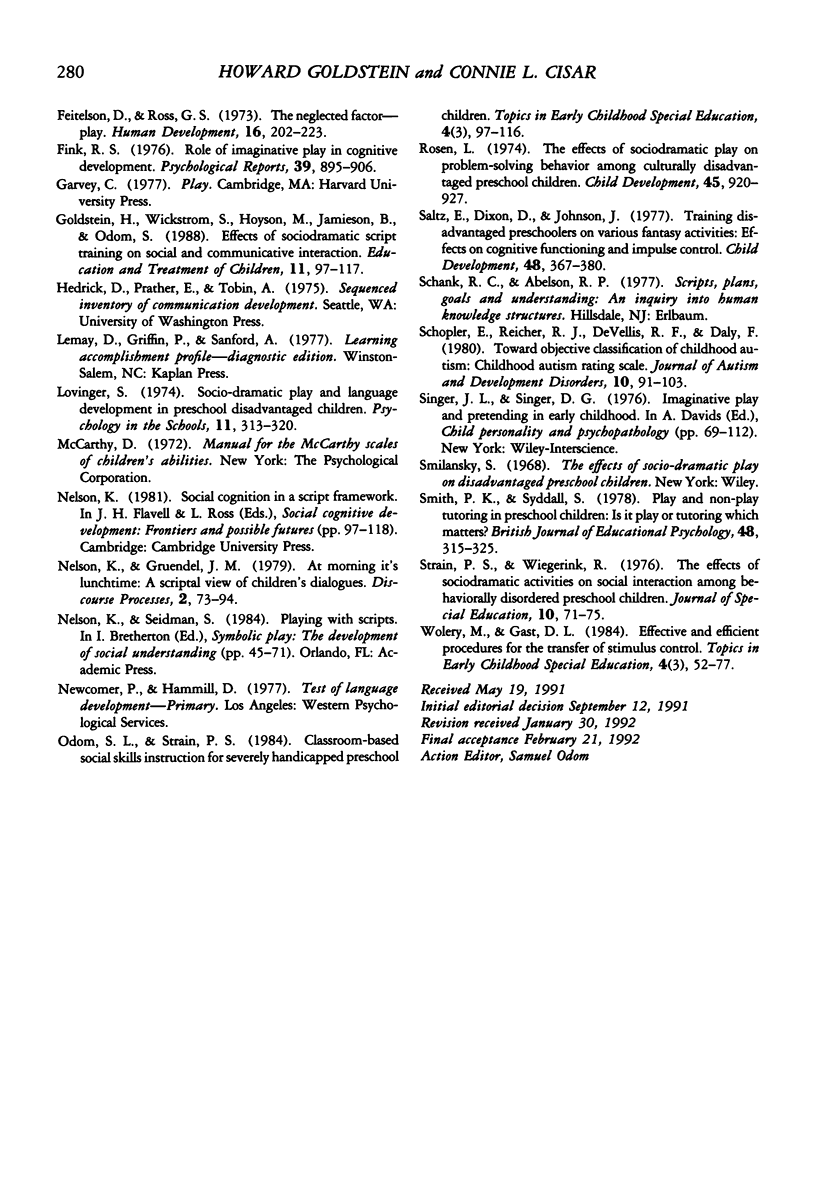
Selected References
These references are in PubMed. This may not be the complete list of references from this article.
- Feitelson D., Ross G. S. The neglected factor--play. Hum Dev. 1973;16(3):202–223. doi: 10.1159/000271276. [DOI] [PubMed] [Google Scholar]
- Rosen C. E. The effects of sociodramatic play on problem-solving behavior among culturally disadvantaged preschool children. Child Dev. 1974 Dec;45(4):920–927. [PubMed] [Google Scholar]
- Saltz E., Dixon D., Johnson J. Training disadvantaged preschoolers on various fantasy activities: effects on cognitive functioning and impulse control. Child Dev. 1977 Jun;48(2):367–380. [PubMed] [Google Scholar]
- Schopler E., Reichler R. J., DeVellis R. F., Daly K. Toward objective classification of childhood autism: Childhood Autism Rating Scale (CARS). J Autism Dev Disord. 1980 Mar;10(1):91–103. doi: 10.1007/BF02408436. [DOI] [PubMed] [Google Scholar]


